The African land question is replete with issues of increasing landlessness, insecure tenancy, eviction and conflict. Portrayed against the backdrop of African Land Tenure and Foreign Land Ownership, commonly referred to as Land Grabs, this article raises questions as to whether such a phenomenon poses a threat or provides opportunity for sustainable development in Africa. More specifically, our thesis contends that the current land acquisitions by foreign investors have put the land question in Africa back on the global development agenda and also argues that land ownership and land use in Africa is a highly contentious, yet emotive, and worthy of critical analysis.
The concept of land is complex and incorporates many different aspects. Even when land is narrowly defined as a question of control over agricultural and pastoral land (rather than rights to natural resources such as water, minerals or forests, which are linked to, and to a large degree, embedded within the question of land rights), the land question is multi-dimensional, with economic, political, social and spiritual dynamics – it is as one civil society activist put it, “When someone loses their land not only do they lose their livelihood, but they also lose their identity”.
During the period 2007 to 2008, when the food insecurity crises pervaded the globe, the land question took on a new meaning and direction. Africa became the new frontier for global food and agro-fuel production. Currently, billions of dollars are being mobilised to create the infrastructure that will connect more of Africa’s farmland to global markets, and billions more are being mobilised by investors to take over those farmlands to produce for foreign markets.
In a rapidly globalising world, land demands are to an increasing extent driven by factors anchored exogenously. Products derived from land use are often not consumed where they are produced. The globalisation of the economy implies that local land use changes are increasingly driven by demands for products that are part of commodity chains with a large geographical span. Local human needs and local capital input are not necessarily as important determinants for land as was the case in many land use systems before the phenomena of globalisation swept the world. In this respect, the land question in Africa has come to the fore, once again. However, this time around, Africa has become the new frontier of land acquisitions – not by local people, but by foreign financial institutions, specifically multinational corporations.
Various terminologies have been used to describe the phenomenon of land outsourcing in Africa and other developing countries. Terms such as “commercialisation”, “colonisation”, “new imperialism”, neo-colonialism”, “land grabbing”, “agro- investments” and “new land invasions” are being used to describe the land acquisition process in Africa. Some investigators contend that the direct control of land by foreign companies is only part of a general trend towards the commodification of land in Africa. They warn that in this period of globalisation, a new inherent tension of security of property rights is born in a hegemonic form, and this in turn, is based on the right to exclude and alienate land. In this respect, it is the peasantry which suffers the most, especially being alienated and evicted from their customary land, once again.
A combination of higher and more volatile global commodity prices, demand for green energy, population growth, urbanisation and globalisation and its overall effects on economic development are the main macro-level factors that have contributed to the land grab phenomena. More specifically, though, the strategic programmes for land acquisition are of food security, particularly in the investor countries, bio-fuels for energy markets in the developed world, finance and hedge funds for land speculation, and more recently, biochar production for the carbon market accreditation.
Given the financial meltdown of 2008, all sorts of players in the finance and food industries, investment houses that manage workers’ pensions, private equity funds looking for a fast turnover, hedge funds which are driven off the now collapsed derivatives market and grain traders seeking new strategies for growth are turning to land, for both food and fuel production – as a new source of profit. Traditionally, land itself is not a typical investment for many of these transnational firms. Indeed, land is so fraught with political conflict that many countries don’t even allow foreigners to own it. And land doesn’t appreciate overnight like gold.
To get a return, investors need to raise the productive capacities of the land. Moreover, the food and financial crises of 2008 combined have turned agricultural land into a new strategic asset. Globally, food prices are high and land prices are low and most of the “solutions” to the food crisis talk about pumping more food out of the land that is available. Clearly, there is money to be made by getting control of the best soils, near available water supplies, as fast as possible.
While the benefits for land-seekers are obvious, the benefits to African countries may not be as apparent. For example, one of the most important patterns to notice in these transnational land acquisitions is the limited importance of financial transfers. Recent reports by the Food and Agricultural Organisation (FAO) reveal that the main benefit to the host country is perceived to be investor commitments like employment creation and infrastructure development. Similarly, other reports indicate that such land agreements can provide macro-level benefits such as GDP growth and greater government revenue, raise local living standards, and bring technology, capital and market access. In addition, improving the productivity of African agriculture undoubtedly serves as a huge point of interest for governments seeking foreign investment and in turn transnational land leases.
Despite the possibility for benefits associated with such land transfers, reactions from land-based movements, civil society organisations and organisations like the Oakland Institute and GRAIN have been highly critical and the perceived costs to the local land users appear high. Complaints about the lack of transparency in land agreements are widespread, a problem which can easily spur corruption and unfair negotiations. Many reports describe unbalanced power relationships where rich governments or international corporates have an obvious advantage in negotiating with African nations that may not always be politically stable or respectful of the rights of their citizens and may lack the institutional frameworks necessary to enforce contracts.
Similarly, the issue of land tenure comes up repeatedly, as African governments are criticised for failing to protect their agricultural workers from exploitation in this regard and accused of leasing land that they only “nominally own.” Land deals are often done in secret without informing the current land users, which causes them to be suddenly dispossessed.
Land garbs are also beginning to pose other threats and risks. Many global analysts predict that the biggest security threats in the twenty-first century may centre on disputes over water and the food that earth’s dwindling water supply is able to produce. The greatest threat to our common future, writes Lester Brown, President of the Earth Policy Institute, “is no longer conflict between heavily armed superpowers, but rather spreading food shortages and rising food prices—and the political turmoil this would lead to.”
Commodity speculation in food staples has created huge profits for companies such as the American investment firm Goldman Sachs, which is regarded as one of the world’s leaders in the trading of crop futures. Many other international banks are also heavily involved. The United Kingdom–based public interest group World Development Movement (WDM, now renamed Global Justice) estimates that Barclays, for example, has made up to £340 million a year from speculating on food prices. The WDM also found that financial speculation on food had nearly doubled in the preceding five years, from $65 billion a year to $126 billion a year worldwide.
Even ‘prestigious’ universities are joining the queue to invest in these new hedge funds. A new report on land acquisitions in seven African countries suggests that Harvard, Vanderbilt and many other US colleges with large endowment funds have invested heavily in African land in the past few years. Much of the money is said to be channelled through London-based Emergent asset management, which runs one of Africa’s largest land acquisition funds, run by former JP Morgan and Goldman Sachs currency dealers.
Land grabs—whether initiated by multinational corporations and private investment firms, sovereign wealth funds in the Middle East or state entities such as China and India—are now in the news constantly.
Land grabs in the contemporary period are reminiscent of the colonial era with foreign nations again staking a claim on the continent. Moreover, since African governments are partnering with foreign investors in the land grab, onlookers are left to question if this is another case of corrupt African leaders selling their citizens short or simply governments pursuing an economic development opportunity. Evidence suggests a marked disparity in the benefits received by those involved in and affected by these transnational land acquisitions, particularly for those originally dwelling on the land.
Such a problem deserves both increased international attention and country-level debate to ensure these agreements provide more equal benefits to all parties involved.
The new phenomenon of land outsourcing spawns it own discourses and prescriptions as to how land should be held and how disputes and conflicts should be adjudicated and the institutional frameworks that should underpin such systems. Thus holistically viewed, land outsourcing has to be understood within the context of two mutually inclusive processes, i.e. the macro level (global, regional and national levels) and the micro level (the peasantry and the intermediary administration). In this respect, it is essential to understand nuances and narratives at the intersections of the two, in order to establish what is really going on within the land acquisition process.
The possibility of volatile land conflicts also loom large within the context of the land acquisition process. Given that most of these acquisitions are for macro scale crop production, it is highly likely that a large number of vulnerable rural inhabitants will be displaced. As long as the African peasantry feel and experience economic exclusion, they are more likely to protest politically about their lack of access to land.
Given the recent history of colonial exploits, we contend that the new phenomenon of land acquisition begs the question of how to make the new agreements consensual endeavours as opposed to unwelcomed “land grabbing” that infringes upon the rights of local land holders. While there are definite possibilities for macro level economic benefits for African countries from foreign investment in agriculture and land development, these gains may not be felt by those originally dwelling on the land. The issue must be seriously and immediately debated by African governments, civil society organizations, policy makers, politicians and scholars.
Finally, the authors are of the sincere conviction that business schools, if they are ‘worth their weight in salt’ and bear any testimony to the intrinsic values of social entrepreneurship should assist in unveiling the exploitative tentacles of insidious financial institutions and multinational corporations. In this respect, business educators can contribute significantly by introducing issues of social responsibility, social justice and ethics in their programmes, especially when they deal with investment portfolios of the new hedge funds and multinational companies. This must of necessity be the founding principle of mission statements of all business schools in Africa and other emerging economies.
Certainly investors can make huge profits through investments in new international hedge funds which focus on land, but at what cost? Let us be reminded, once again by Dalrymple’s visionary account of the history of the East India Company – “its story has never been more current”. The new wave of ‘looting’ of land and other natural resources will continue on a scale hitherto unknown. We need to think of the thousands of people in Africa and other emerging nations who are and will become landless in the countries of their birth by an act which is transcribed by a pen on a piece of paper, and then ‘transported’ by a click of a button, thousands of kilometers away to be sanctioned and acted upon. The negative multiplier effects of such acts are too horrendous to contemplate. Remember Dalrymple’s prophetic words!
Ahmed Shaikh, is a senior Faculty and the CEO of REGENT Business School. Anis Karodia, is senior Faculty and Director of the Centre of Health Care Management at REGENT Business School. Joseph David, is senior Faculty and Director of the Centre for Public Sector Management at REGENT Business School. Dhiru Soni, is a researcher and consultant to the higher education sector



















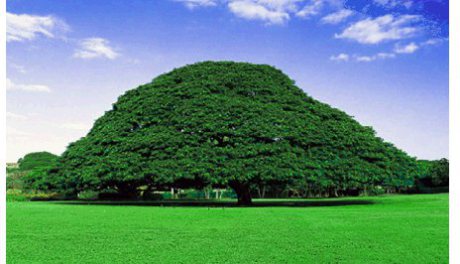
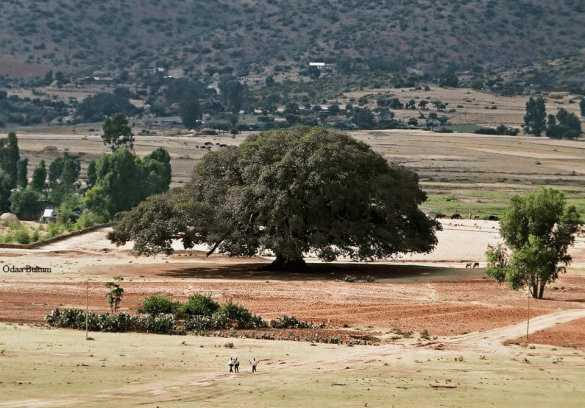
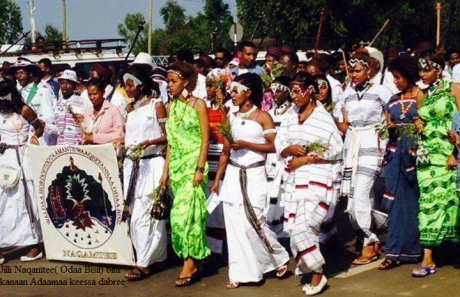
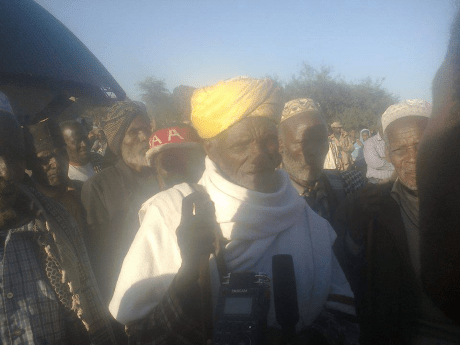

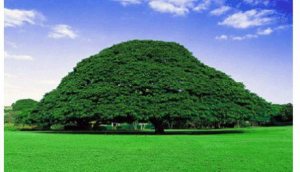
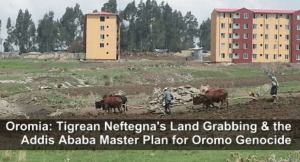
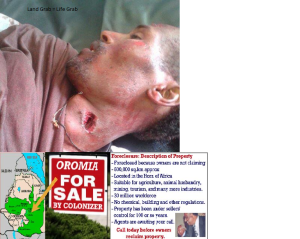

You must be logged in to post a comment.